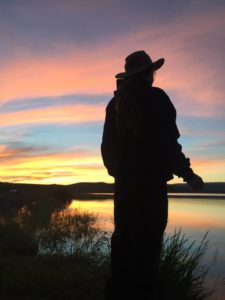 The educational environment and expectations in our country have changed a lot in the past few decades. In today’s world, as kids near high school graduation they are expected to have a life plan. Most importantly this includes a plan for college. Five years ago, as I neared graduation, the rhetoric of my teachers, counselors and parents urged me to find a college I wanted to attend and a degree I wanted to study; which basically leads to a life plan. The issue is at 18, few kids know what they want for dinner, let alone what they want for their life. Because of this pressure, I picked a school, but I didn’t have much luck picking and sticking to a major.
The educational environment and expectations in our country have changed a lot in the past few decades. In today’s world, as kids near high school graduation they are expected to have a life plan. Most importantly this includes a plan for college. Five years ago, as I neared graduation, the rhetoric of my teachers, counselors and parents urged me to find a college I wanted to attend and a degree I wanted to study; which basically leads to a life plan. The issue is at 18, few kids know what they want for dinner, let alone what they want for their life. Because of this pressure, I picked a school, but I didn’t have much luck picking and sticking to a major.
It was not until last summer when I attend an 18 day Environmental Ethics course through the Wild Rockies Field Institute that I knew what I wanted to do with my life. Through this course, I gained experiential knowledge of climate change and environmental issues which led to a passion in educating myself in environmental issues. Currently, I am on my second WRFI course, Cycle the Rockies. Over the past three weeks we have been studying the energy systems in Montana, the economic, social and environmental impacts of these systems, as well as the broader topic of climate change.
In past blogs, I have discussed the specific information I have learned in this course. Now I would like to take time to reflect on the benefits of outdoor education through WRFI and field courses in general.
To me, one of the most rewarding qualities of WRFI has been the time spent in the great outdoors. Remember in grade school when the teacher would announce that class would be held outdoors? I’m not sure about you, but I felt those were the best days. With WRFI, every day is an outdoor class day, and it’s not in the school yard, but rather it is amongst some of the most breathtaking scenery imaginable. I have had class in locations ranging from sandstone rocks perched on bluffs overlooking the endless grassy plains of the west, to natural mineral hot springs, to high mountain meadows on the continental divide. Tell me, with a straight face, that you would rather be in a clammy lecture room, packed with hundreds of students.
As engaging as the setting of WRFI classes is the class style and subject matter. Forget outdated (and expensive) textbooks and boring multi hour lectures. In the WRFI “classroom” the focus is on updated scientific journals and reliable, progressive reporting. Both of the courses I have attended have had an incredible collection of engaging and relatable material. As we traversed the high alpine we read of western pine beetles, endangered pika and receding glaciers. As we biked through wind farms we learned of energy policy, the viability of renewables and the economic impact of eliminating fossil fuels. I find there is no better time to learn about an issue than when it is right in front of you, begging for your inquiry.
All in all, field courses and WRFI in particular, provide students with an experience that the traditional college class cannot. They allow for hands on learning. They encourage real time discussion and debate. They surround you with an environment saturated in inquiry and information that goes beyond textbooks and lectures. Best of all, they do this while immersed in the great outdoors. For me, these classes have left a more lasting impression than all of my traditional college education combined. They have also allowed me to realize that climate change and environmental education are areas I want, and need, to spend the rest of my life perusing.
Traditional four year institutions may not be for everyone. But learning about what you love while immersed in real life situations brings about something, I feel, everyone can benefit from.
One Reply to “Cory Horton: The Value Found in Field Course Experiences”
Comments are closed.
Cory, thanks so much for sharing your thoughts and appreciations for field based education as WRFI practices it. As someone who has dedicated most of my life to this way of learning, and many many days in the field with WRFI, it is extremely gratifying to read your post. The chance to significantly impact promising students like you – to subtly bend the course of lives toward genuine experience, inquiry, and engagement with places and issues that matter – that is what I have most hoped and worked for. Thanks again for your writing and best wishes on your future career(s). Let us know if we can help in any way!